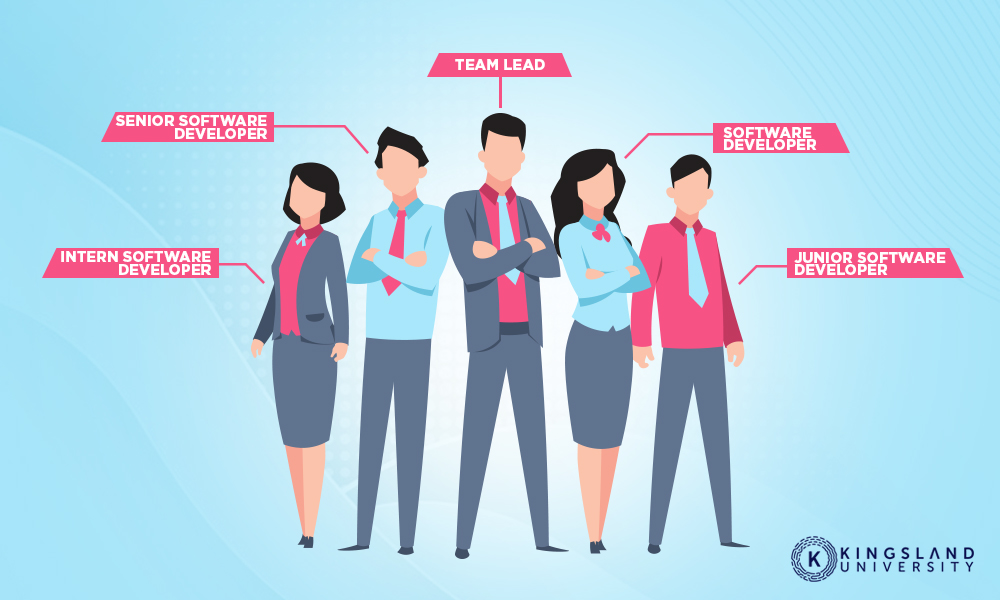Software developer levels play a crucial role in defining the responsibilities, skills, and career trajectory of software professionals. Understanding the different levels and their associated expectations empowers developers to plan their growth and navigate the industry landscape effectively.
This comprehensive guide delves into the various software developer levels, exploring the factors that influence career progression, salary expectations, essential skills, and qualifications, as well as industry trends shaping the future of software development.
Types of Software Developer Levels

The software development industry encompasses a range of levels, each characterized by specific responsibilities, skill sets, and experience. Understanding these levels is crucial for career advancement and effective team collaboration.
Software developer levels are typically classified into a hierarchy, with each level building upon the knowledge and skills acquired at the preceding level. The most common levels, in ascending order, include:
Junior Software Developer
- Entry-level position with limited experience in software development.
- Responsibilities include assisting senior developers, writing code under supervision, and conducting basic testing.
- Typically requires a bachelor’s degree in computer science or a related field.
Mid-Level Software Developer
- Has several years of experience in software development and is proficient in multiple programming languages.
- Responsibilities include designing and implementing software solutions, mentoring junior developers, and participating in code reviews.
- Typically requires a bachelor’s degree in computer science or a related field, along with 3-5 years of experience.
Senior Software Developer, Software developer levels
- Has extensive experience in software development and is highly skilled in multiple programming languages and technologies.
- Responsibilities include leading software development projects, mentoring junior and mid-level developers, and providing technical guidance to the team.
- Typically requires a bachelor’s degree in computer science or a related field, along with 5-10 years of experience.
Lead Software Developer
- Has exceptional experience in software development and is responsible for managing and overseeing software development teams.
- Responsibilities include setting technical direction, allocating resources, and ensuring the timely delivery of software products.
- Typically requires a bachelor’s degree in computer science or a related field, along with 10+ years of experience in software development.
Principal Software Developer
- Has unparalleled experience in software development and is recognized as an expert in the field.
- Responsibilities include providing strategic guidance, mentoring senior developers, and contributing to the advancement of software development practices.
- Typically requires a bachelor’s degree in computer science or a related field, along with 15+ years of experience in software development.
Career Progression for Software Developers

Software development is a dynamic field that offers ample opportunities for career growth and advancement. The typical career progression path for software developers involves a gradual ascent through various levels, each requiring a unique blend of skills, knowledge, and experience.
Factors Influencing Advancement
Advancement to higher levels in software development is primarily driven by several key factors, including:
- Performance and Technical Expertise:Consistently delivering high-quality work, demonstrating strong technical proficiency, and staying abreast of industry trends are crucial for advancement.
- Communication and Leadership Skills:Effective communication, collaboration, and the ability to lead and mentor others become increasingly important at higher levels.
- Experience and Industry Knowledge:Years of hands-on experience and a deep understanding of the industry landscape contribute to a developer’s credibility and value.
- Educational Background:Formal education in computer science or a related field can provide a solid foundation and open doors to specialized roles.
- Certifications and Recognition:Industry certifications and recognition from peers demonstrate a commitment to professional development and excellence.
Skills and Knowledge Required for Each Level
The specific skills and knowledge required for each level of software development vary, but generally include:
- Junior Software Developer:Entry-level developers typically focus on coding, testing, and basic software development principles.
- Mid-Level Software Developer:With experience, developers gain proficiency in software design, architecture, and project management.
- Senior Software Developer:Senior developers lead teams, mentor junior developers, and take on complex technical challenges.
- Principal Software Developer:Principal developers provide strategic guidance, oversee large-scale projects, and contribute to industry thought leadership.
- Chief Software Architect:The highest level of technical leadership, responsible for defining software architecture and guiding the technical direction of the organization.
Salary Expectations for Software Developers

Salary expectations for software developers vary widely depending on a number of factors, including experience, location, and industry. However, there are some general trends that can be observed.
Entry-level software developers can expect to earn a salary in the range of $50,000 to $70,000 per year. Mid-level software developers with 3-5 years of experience can expect to earn a salary in the range of $70,000 to $100,000 per year.
Senior software developers with 5+ years of experience can expect to earn a salary in the range of $100,000 to $150,000 per year.
There are a number of factors that can impact a software developer’s salary. These factors include:
- Location: Software developers in large metropolitan areas such as San Francisco and New York City can expect to earn higher salaries than software developers in smaller cities.
- Experience: Software developers with more experience can expect to earn higher salaries than software developers with less experience.
- Industry: Software developers who work in high-paying industries such as finance and healthcare can expect to earn higher salaries than software developers who work in lower-paying industries such as retail and hospitality.
The following table provides a comparison of salary ranges for software developers at different levels:
| Level | Salary Range |
|---|---|
| Entry-level | $50,000 to $70,000 |
| Mid-level | $70,000 to $100,000 |
| Senior | $100,000 to $150,000 |
Skills and Qualifications for Software Developers: Software Developer Levels
Software developers are responsible for designing, developing, and maintaining software applications. To succeed in this field, they require a combination of technical skills and soft skills. The specific requirements vary depending on the level of experience and the type of software being developed.
Essential skills for software developers include:
- Programming languages:Proficiency in at least one programming language is essential. Common languages include Java, Python, C++, and JavaScript.
- Software development methodologies:Knowledge of software development methodologies such as Agile and Scrum is important for effective project management.
- Data structures and algorithms:A solid understanding of data structures and algorithms is crucial for designing efficient and scalable software.
- Database management:Familiarity with database management systems such as SQL and NoSQL is essential for storing and managing data.
- Communication and teamwork skills:Software developers often work in teams and must be able to communicate effectively with colleagues, clients, and stakeholders.
In addition to these essential skills, software developers may also benefit from obtaining certifications and pursuing professional development opportunities. Certifications demonstrate a commitment to the profession and can enhance credibility. Professional development courses can help developers stay up-to-date with the latest technologies and trends.
Recommended Resources for Skill Enhancement
There are numerous resources available for software developers to enhance their skills. These include:
- Online courses:Platforms such as Coursera, Udemy, and edX offer a wide range of courses on software development topics.
- Books:Classic books on software development, such as “The Pragmatic Programmer” and “Clean Code,” provide valuable insights and best practices.
- Conferences and workshops:Attending industry conferences and workshops can provide opportunities for networking, learning about new technologies, and staying up-to-date on the latest trends.
- Open source projects:Contributing to open source projects can provide practical experience and help developers build their portfolios.
Ending Remarks

In conclusion, software developer levels serve as milestones in the career journey, guiding professionals through their growth and development. By aligning skills, experience, and industry trends, developers can navigate the complexities of the software development landscape, maximizing their potential and achieving career success.
Essential FAQs
What are the key factors that determine career progression for software developers?
Factors such as technical skills, experience, leadership abilities, and industry knowledge play a significant role in career advancement.
How do industry trends impact software developer levels?
Emerging technologies, such as artificial intelligence and cloud computing, are reshaping software development practices, creating new opportunities and altering the skill requirements for different levels.
What are the essential skills and qualifications for software developers at different levels?
Core programming languages, software design principles, and problem-solving abilities are fundamental at all levels, while specialized skills, such as cloud architecture or data science, become more prominent at higher levels.
